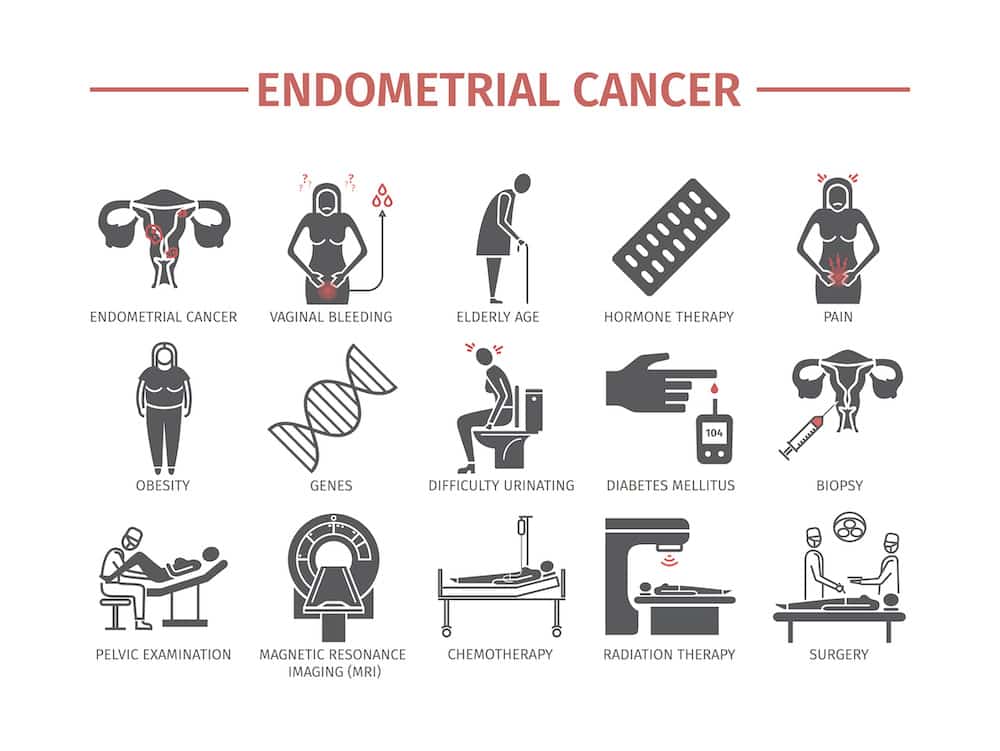Endometrial cancer, also known as uterine cancer, is a type of cancer that originates in the lining of the uterus, called the endometrium. The endometrium undergoes cyclical changes throughout a woman’s menstrual cycle, thickening and shedding in response to hormonal fluctuations.
Endometrial cancer typically develops when there is an abnormal growth of cells in the endometrium. These cancerous cells can form a tumour within the uterus and, in some cases, may metastasize to nearby tissues of the body.
Endometrial cancer is common in the United States. Approximately 67 thousand new cases of uterine cancer (including endometrial cancer) are diagnosed yearly. It is more common in postmenopausal women, with the average age of diagnosis being in the early 60s. However, it can occur at any age.
Symptoms

Endometrial cancer can present with various symptoms, and it’s essential to recognize them because early detection can lead to better outcomes. Here’s an explanation of the symptoms you mentioned:
-
Abnormal Vaginal Bleeding

Abnormal vaginal bleeding is one of the hallmark symptoms of endometrial cancer. It is often the most noticeable and concerning sign that prompts women to seek medical attention. Here’s a more detailed explanation of how abnormal it can be a symptom of endometrial cancer:
- Postmenopausal Bleeding: The most significant red flag for endometrial cancer is vaginal bleeding after menopause. Menopause is the cessation of menstrual cycle for at least 12 consecutive months. Any bleeding or spotting after this amenorrhea period should be investigated promptly, as it is considered a sign of endometrial cancer.
- Irregular Menstrual Bleeding in Pre-menopausal Women: In women who have not reached menopause, endometrial cancer can lead to irregular and often heavy menstrual bleeding that is unusual for their typical menstrual patterns. This bleeding may be characterized by prolonged periods or spotting between periods.
- Other Patterns of Abnormal Bleeding: Abnormal bleeding associated with endometrial cancer can take various forms, including:
- Heavy menstrual bleeding (menorrhagia).
- Bleeding between periods (metrorrhagia).
- Bleeding after sexual intercourse (postcoital bleeding).
- Abnormal bleeding in younger women who have not yet reached menopause.
It’s important to note that while abnormal vaginal bleeding can be an indication of endometrial cancer, it can also be caused by other conditions, such as uterine fibroids, hormonal imbalances, polyps, or infections. However, any unusual or persistent bleeding should be evaluated by a gynecologist to determine the underlying cause. Early detection and treatment of endometrial cancer can lead to better treatment outcomes.
